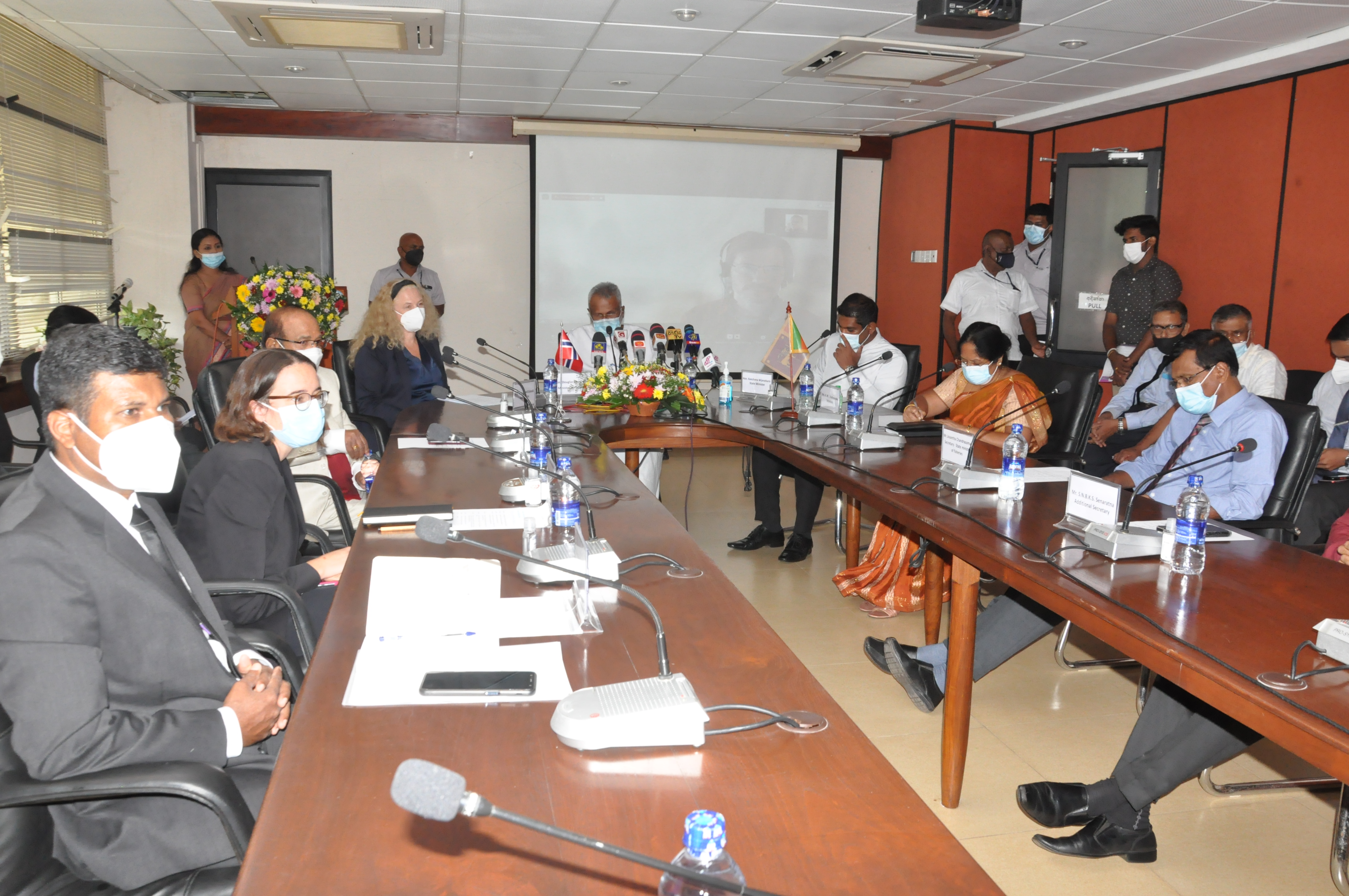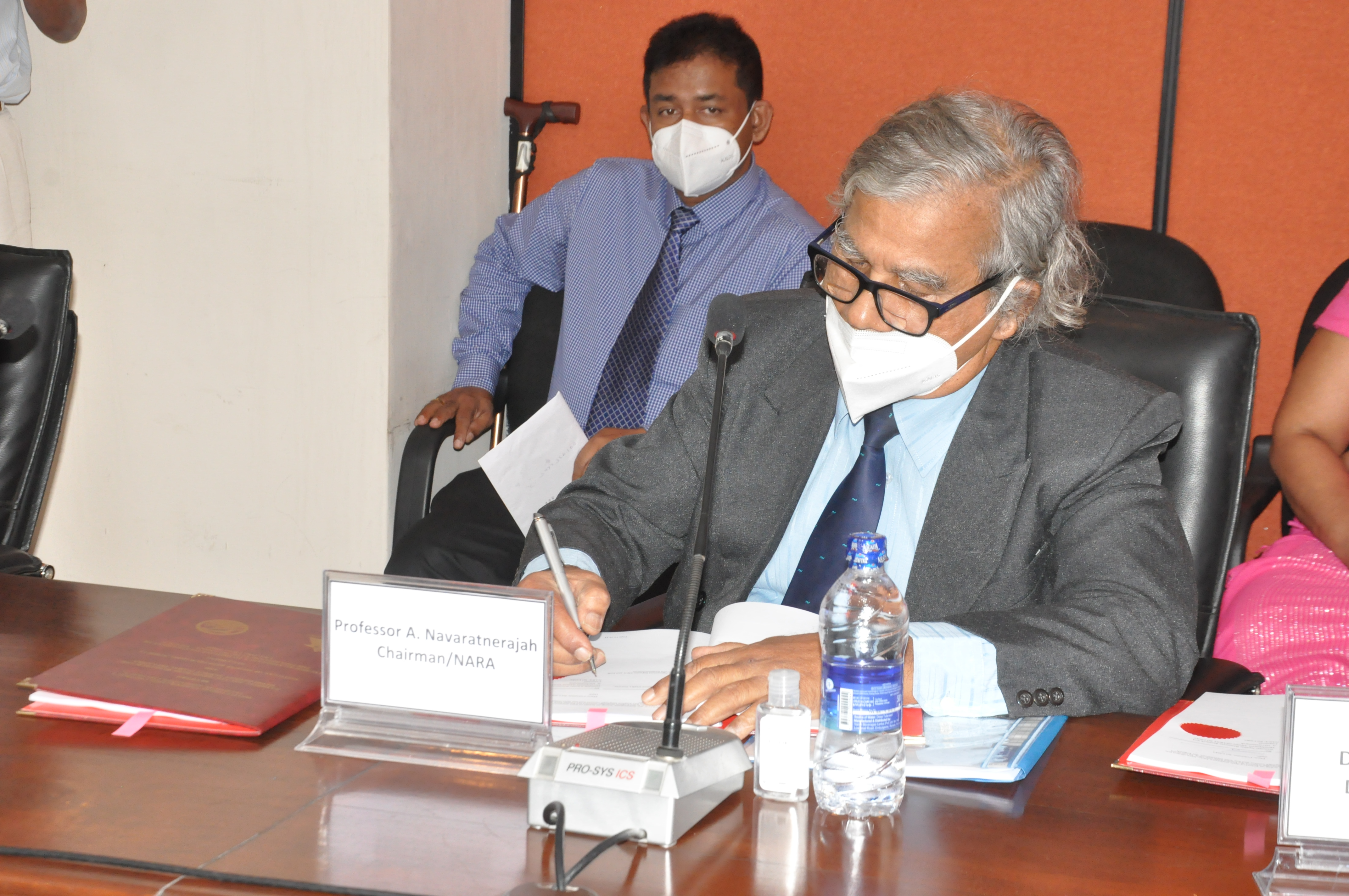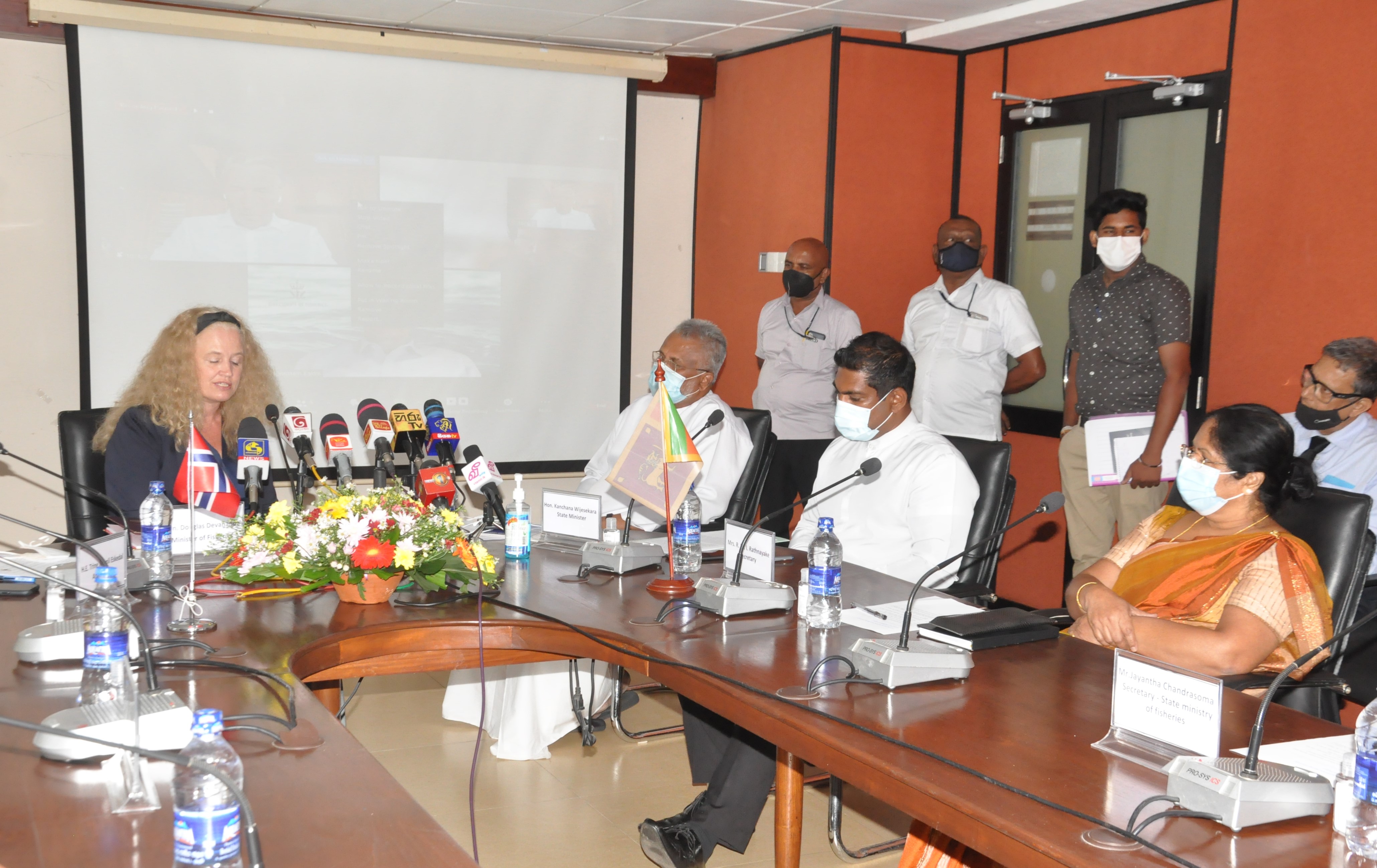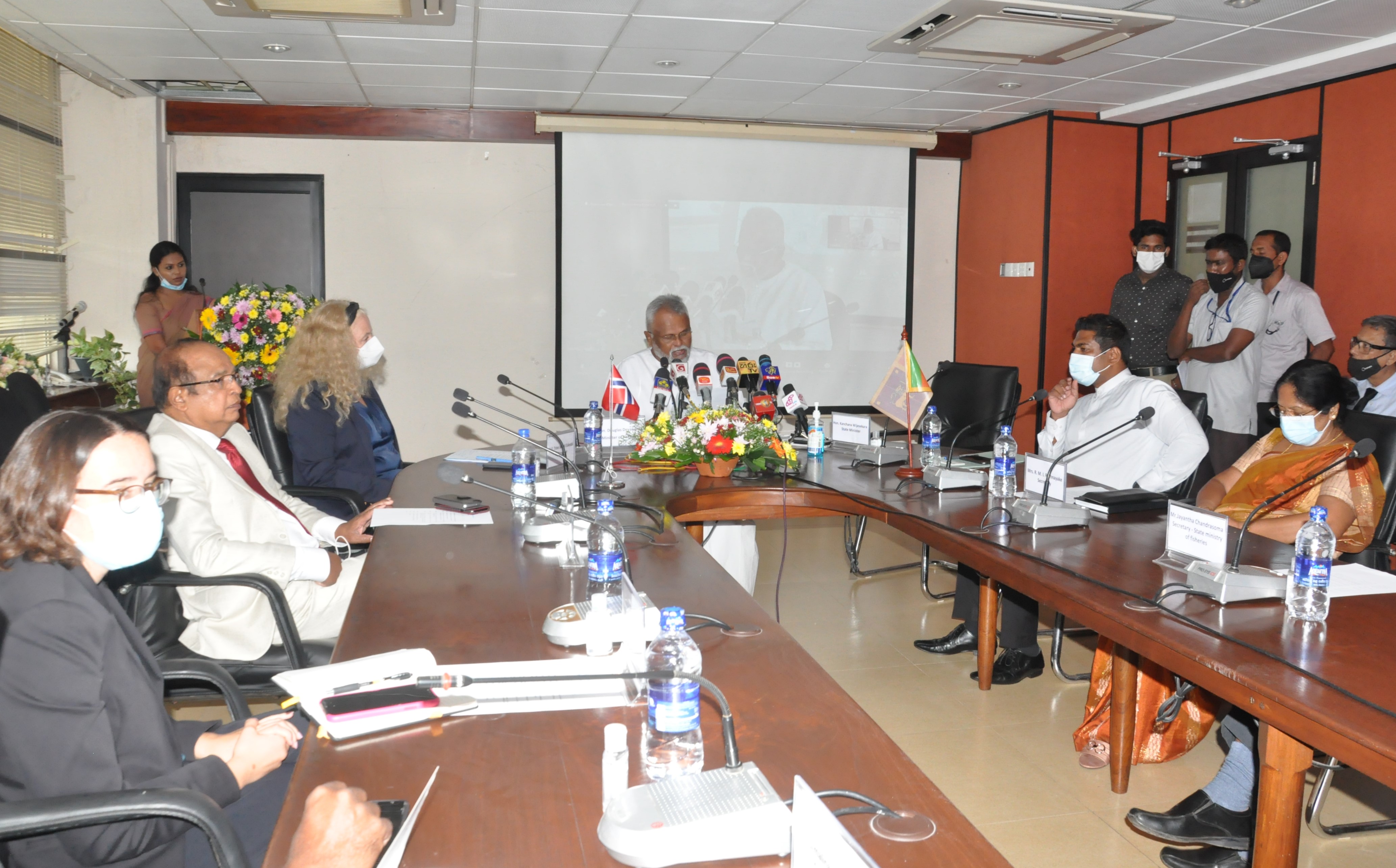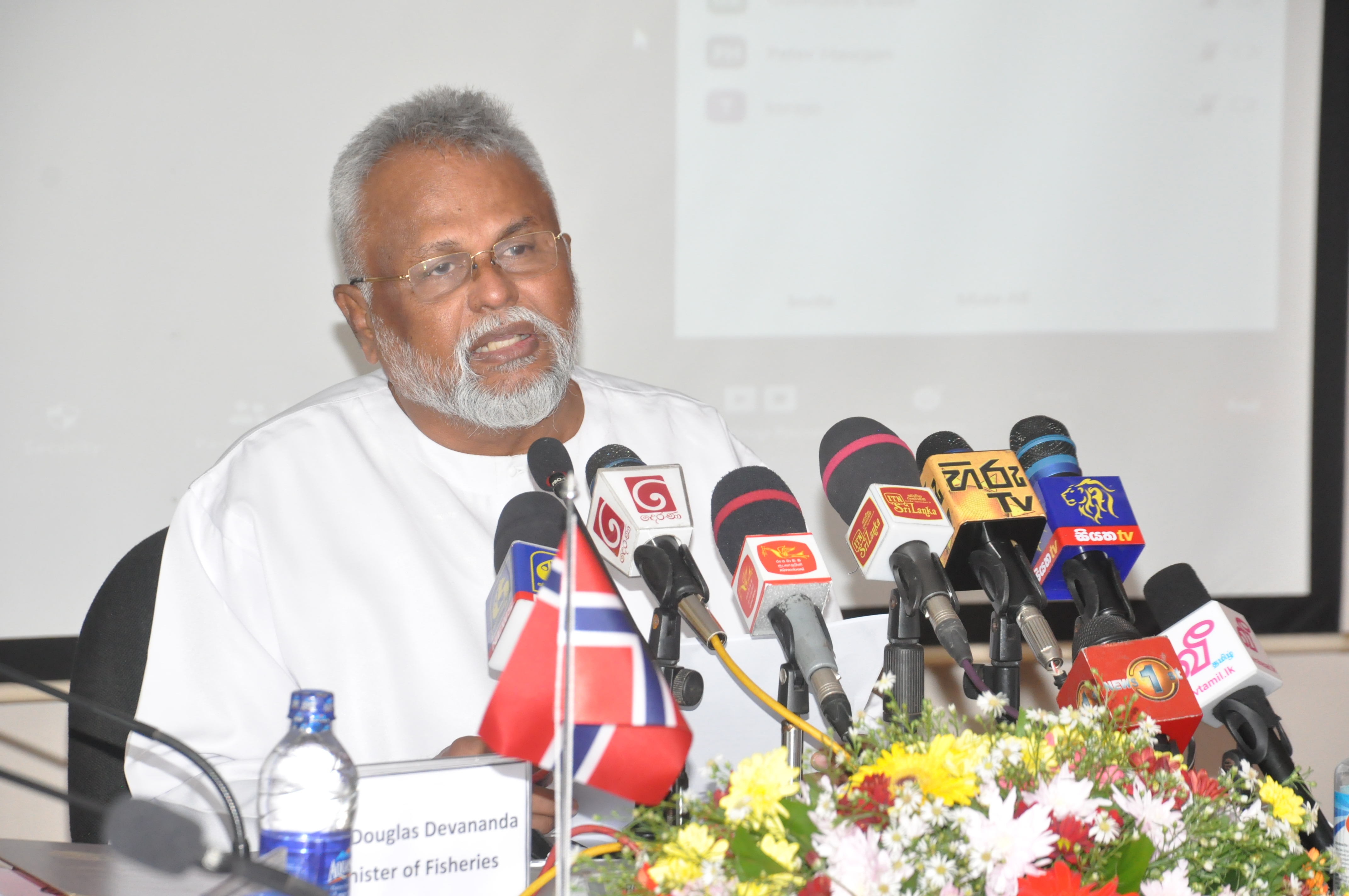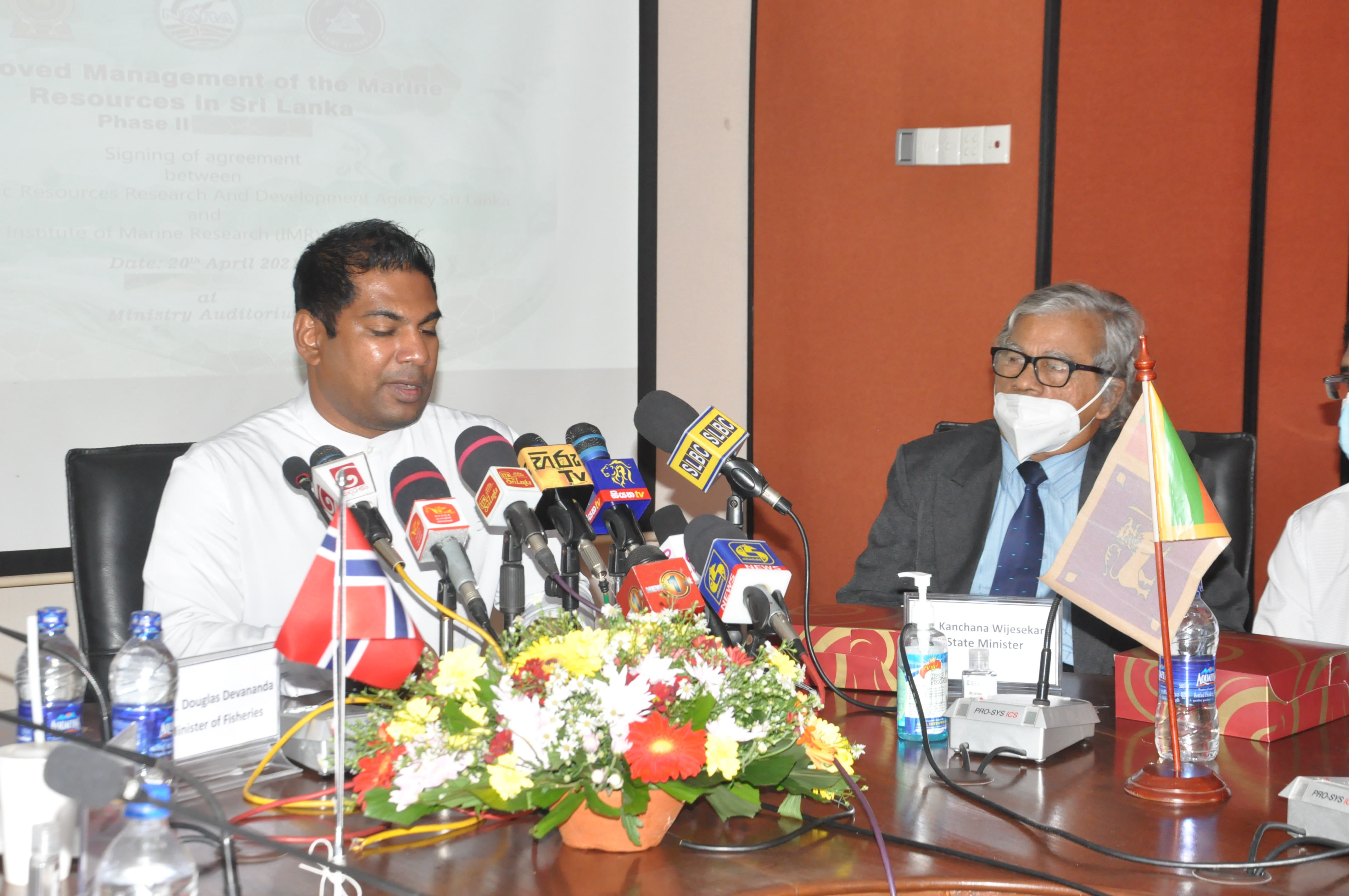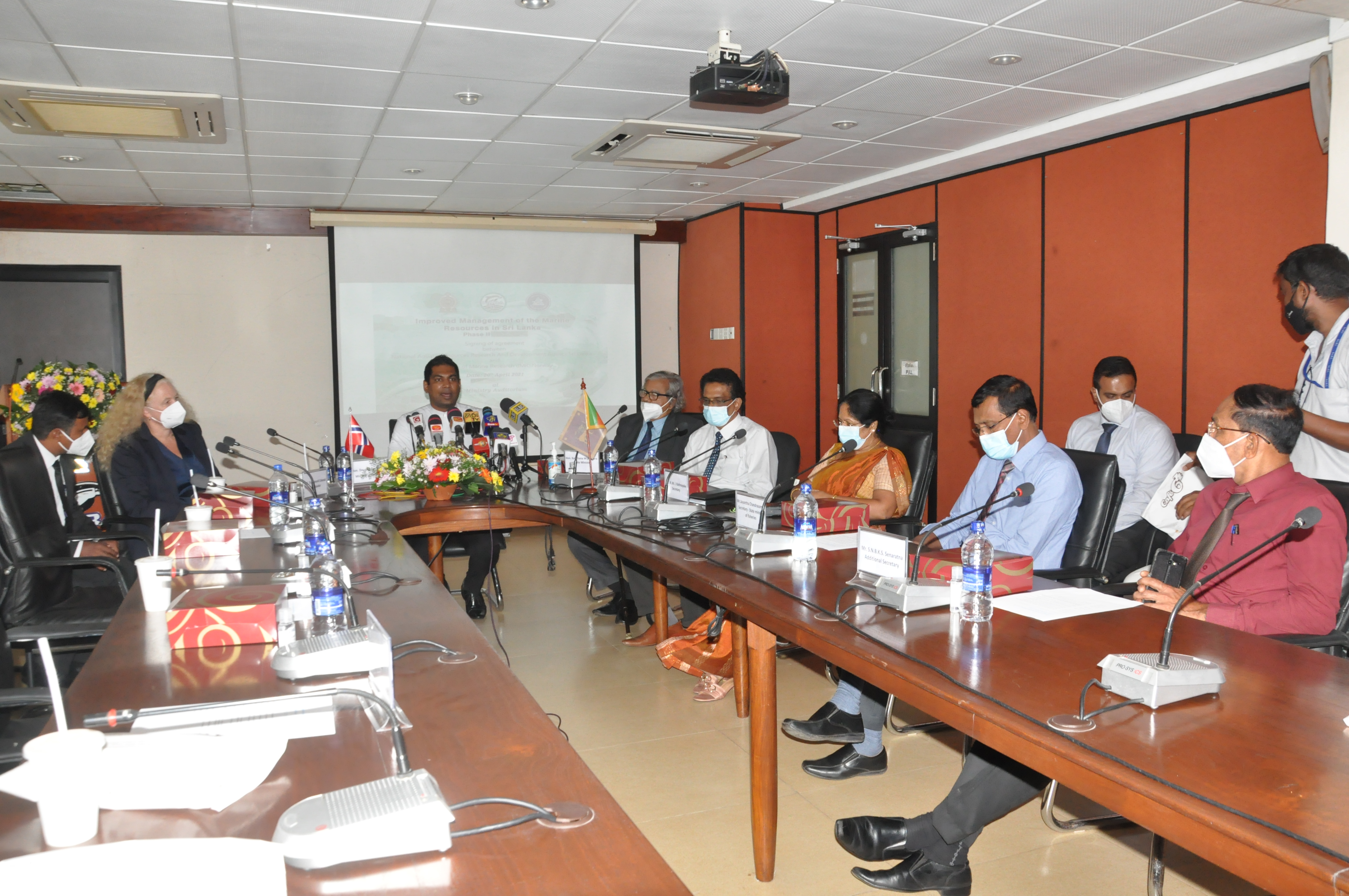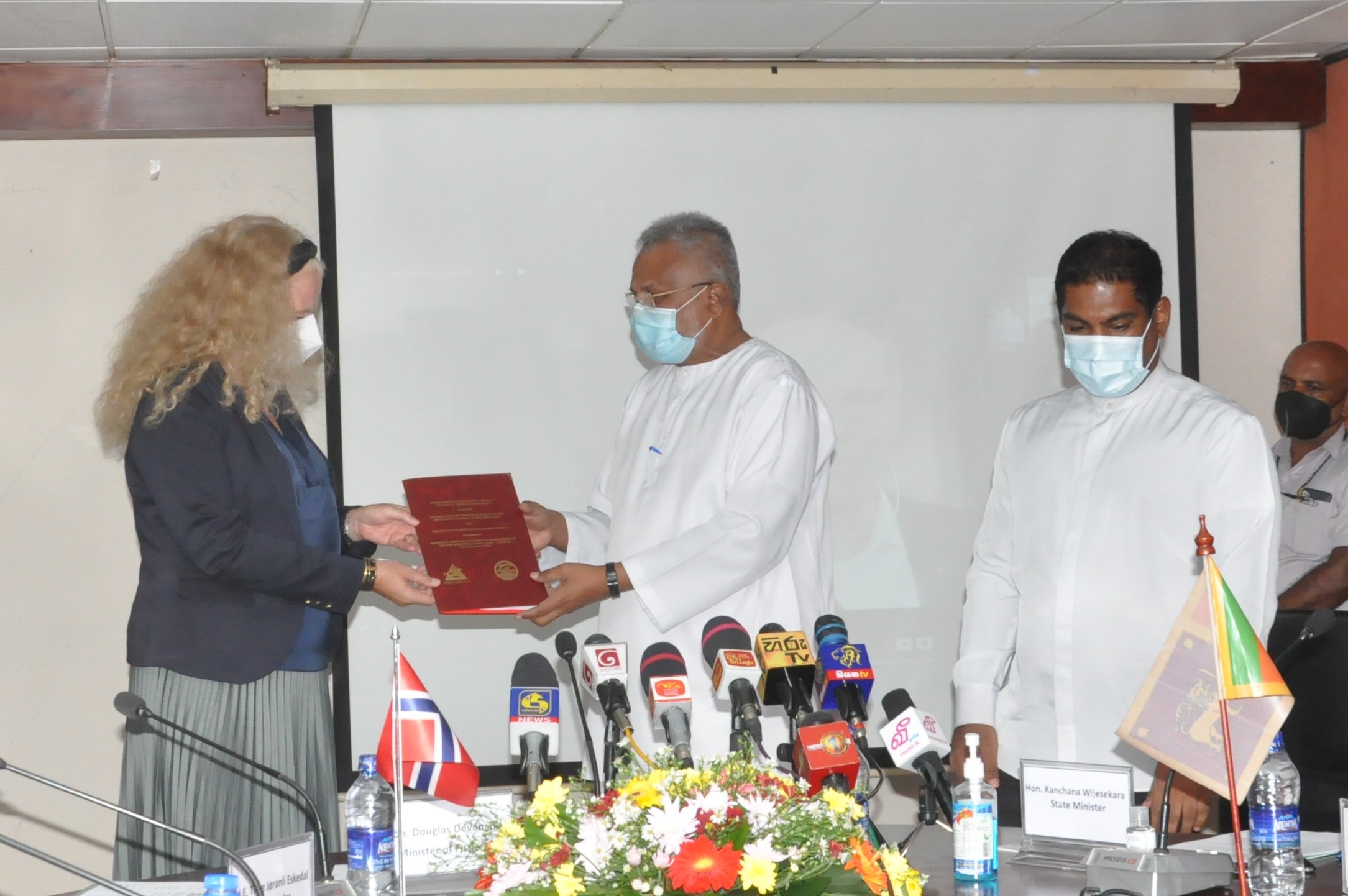The agreement on the Second phase of providing technical assistance to improve the management of fishery resources in Sri Lanka between the National Aquatic Resources Research and Development Agency (NARA), Sri Lanka and the Institute of Marine Research, Norway (IMR) was signed on 20th April 2021 at the Auditorium of the Ministry of Fisheries.
Hon. Minister Douglas Devananda, Ministry of Fisheries; Hon. Kanchana Wijesekara, State Minister of Ornamental Fish, Inland Fish & Prawn Farming, Fishery Harbour Development, Multiday Fishing Activities and Fish Exports; H.E. Trine Jøranli Eskedal, Ambassador of the Kingdom of Norway to Sri Lanka, H.E. Godfrey Cooray, Ambassador of Sri Lanka to Kingdom of Norway; Ms. Indu Ratnayake, Secretary to the Ministry of Fisheries; Mr. Jayantha Chandrasoma, Secretary to the State Ministry of Ornamental Fish, Officials of IMR, Officials of Norwegian Embassy, Director General Technical- Mr. Dhammika Ranatunga, Director General - State ministry of fisheries Mrs. L. Champika Hewage, Prof. Navaratnarajah, Chairman NARA; Dr. H.M.P. Kithsiri, Director General, NARA and Officials of Department of Fisheries, Ministry of Fisheries and NARA were present at the event.
The project is an application for a phase II of the project that started in 2017 and ended in 2019. The main objective of phase I of the project was to provide technical assistance to upgrade existing fisheries dependent data collection and technical assistance and training in conducting fisheries independent marine research surveys. The outcome of the above will be fundamental to formulate management plans for two selected coastal fisheries; small pelagic in the West Coast and demersal resources in the South East Coast.
Phase II captures the aspects of fundemental needs for the sustainable management of the fisheries including quality data that is regularly and systematically collected both from commercial landings and marine scientific surveys. Accordingly, the activities are organized into three Work Packages, corresponding to the WPs of phase I: WP 1 Fisheries dependent data, WP 2 Fisheries independent data and WP 3 Fisheries management. The three WPs are highly interconnected as both fishery dependent and fishery independent data are important inputs to management by providing the knowledge base that management advice must be based upon.
